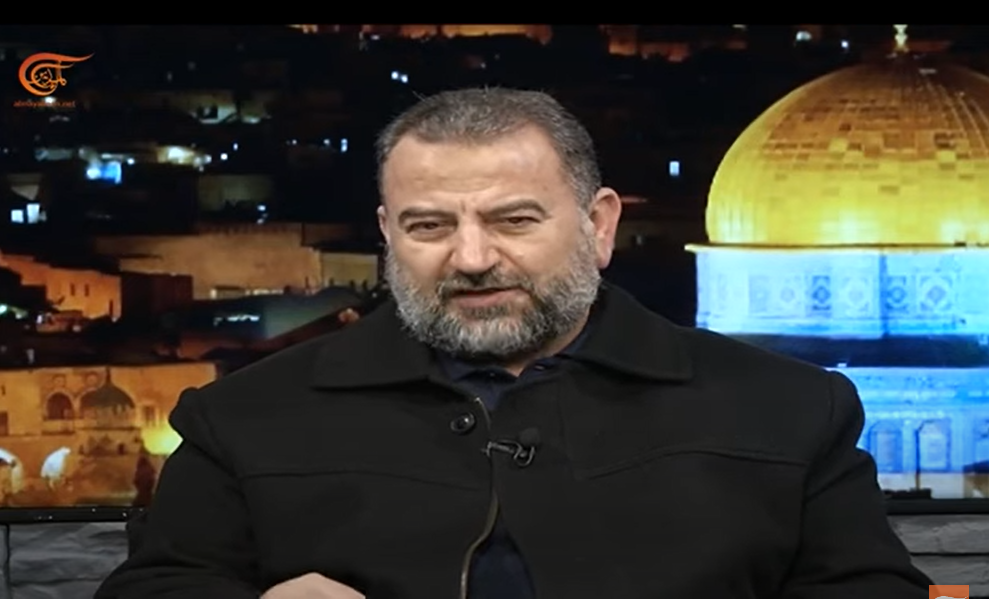Under the weight of this failure, Hassan Nasrallah is reportedly facing intense pressure.
According to anonymous Lebanese commentators, the Israeli Mossad’s remarkable intelligence penetration into the A-Dahiya neighborhood in Beirut, Hezbollah’s main stronghold, has put Nasrallah in a vulnerable position.
This vulnerability was exploited in the successful assassination of Saleh Al-Arouri, the second-in-command of Hamas and a key liaison to Hezbollah and Iran.
The recent killing of Riza Mousavi, a senior member of the Revolutionary Guards in Damascus by Israel, has added to Nasrallah’s concerns.
It appears that Nasrallah is acutely aware that the same reach that targeted Saleh al-Arouri could extend to him.
Despite openly expressing threats last August regarding assassinations on Lebanese soil, Israel proceeded with the killing of Saleh al-Arouri and six of his aides in a meticulously executed operation, drawing recognition from intelligence experts worldwide.
This assassination within Hezbollah’s stronghold is considered a significant humiliation for Hassan Nasrallah in the Arab world, prompting speculation about a decisive response to save his honor.
On January 4, Hezbollah’s mouthpiece, the Lebanese newspaper Al-Akhbar, reported ongoing investigations into the security breach that allowed Saleh al-Arouri’s assassination. Al-Arouri had allegedly disregarded Hezbollah’s warnings of surveillance and the imminent threat to his life.
In September 2023, Lebanese intelligence uncovered a Mossad spy network led by a Hamas operative named Nur Abu Ma’za, dedicated to tracking Saleh al-Arouri in the A-Dahiya area.
The network was dismantled, but Hezbollah kept the incident under wraps.
Despite the warnings and espionage revelations, Saleh Al-Arouri, in media interviews, downplayed the threats, asserting Hamas’s resilience in the face of Israeli aggression.
A senior security official suggests that Saleh Al-Arouri’s assassin employed a sophisticated intelligence system, utilizing human intelligence (Humint), visual intelligence, and Sigint intelligence.
The surveillance operation in the al-Dahiya neighborhood spanned weeks, operating under the nose of Hezbollah’s security apparatus.
Interestingly, Saleh al-Arouri lacked personal security from Hezbollah, and the organization did not insist on providing him with security guards.
Sources in Lebanon indicate that the apartment where Al-Arouri was killed was an old Hamas office long under Israeli intelligence scrutiny.
Despite the risk, Al-Arouri insisted on returning to work in the office, ignoring warnings from Lebanese intelligence.
Current investigations by Hezbollah and Lebanese intelligence focus on identifying foreigners in the area, examining security camera footage and mobile phone records.
The apartment is under scrutiny to locate mobile phones that were with Saleh Al-Arouri, helping trace his whereabouts.
There’s speculation that the spy network may be local rather than foreign, operating in A-Dahiya for an extended period.
This, if true, further exposes the security lapse of both Hezbollah and Hamas.
Despite having prior information about Israel’s intent to eliminate Al-Arouri, Hezbollah failed to prevent the assassination.
Clear statements from Prime Minister Netanyahu, Defense Minister Galant, and Shin Bet chief Ronen Bar left no doubt about Israel’s intentions.
The members of the spy network may have left the area long before the investigation, leaving Hezbollah in a precarious situation.
Unprecedented security measures are being taken, with officials from Hezbollah, Hamas, and Islamic Jihad in the al-Dahiya neighborhood going underground.
Israel has effectively instilled fear in the heart of Hezbollah’s stronghold, and this event may only mark the beginning of more anticipated assassinations.




